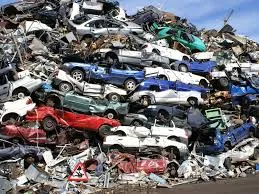

സെപ് . 30, 2024 12:50 Back to list
The Importance of Municipal Solid Waste Sorting Lines
In the modern world, urbanization accelerates, and the generation of municipal solid waste (MSW) skyrockets. The effective management of this waste is crucial for environmental sustainability and public health. One vital aspect of waste management is the implementation of municipal solid waste sorting lines, which play a pivotal role in recycling and resource recovery.
A municipal solid waste sorting line is a systematic process designed to separate different types of waste materials at a centralized facility. The sorting of waste helps in identifying and segregating recyclables, compostables, and non-recyclable materials from the waste stream. By doing so, these lines aid in maximizing waste diversion from landfills and minimizing the environmental impact associated with waste disposal.
The process begins with the collection of waste from residential and commercial areas. Once collected, the waste is delivered to the sorting facility, where it goes through a series of mechanical and manual sorting processes. Initially, large waste items are removed through shredders or screens, which help to separate bulky items. Then, conveyor belts transport the waste to various sorting stations, where trained workers or automated systems meticulously sort the materials.
One of the key components of a sorting line is the use of advanced technologies, such as optical sorters and air classifiers. These technologies enhance the efficiency of the sorting process by identifying and separating materials based on their size, shape, and composition. For example, optical sorters use cameras and sensors to detect different types of plastics or metals, allowing for higher precision in separation.

The sorting line typically categorizes waste into several streams. Common categories include organic waste, plastics, metals, paper, and glass. Organic waste can be processed into compost, contributing to soil enrichment and reducing methane emissions from landfills. Plastics and metals can be recycled, thereby reducing the demand for virgin materials and conserving energy. Paper and glass are also valuable resources that can be reprocessed and reintroduced into the production cycle.
One of the significant benefits of municipal solid waste sorting lines is their positive impact on the environment. By increasing recycling rates and reducing the amount of waste sent to landfills, these lines help conserve natural resources, lower greenhouse gas emissions, and reduce the environmental footprint of waste disposal. Additionally, sorting lines can create job opportunities in the community, from the construction of the facilities to the operation and maintenance of the sorting process.
Moreover, the success of waste sorting lines hinges on public awareness and participation. Communities must be educated about the importance of proper waste disposal and recycling. Initiatives such as awareness campaigns, workshops, and school programs can foster a culture of recycling, driving home the message that individuals play a vital role in the waste management process.
Innovative technologies and strategies continue to evolve in the field of waste sorting. For instance, artificial intelligence and machine learning applications are being increasingly integrated into sorting lines, allowing for smarter and more efficient sorting processes. These innovations not only improve the efficacy of resource recovery but also lower operational costs.
In conclusion, municipal solid waste sorting lines are essential components of sustainable waste management. They facilitate the recycling of valuable materials, thereby conserving resources and protecting the environment. By employing advanced technologies and promoting community engagement, sorting lines contribute significantly to the creation of a circular economy. As cities continue to grow and the challenges of waste management intensify, investing in efficient waste sorting infrastructure will be crucial for a sustainable future. It is imperative that governments, businesses, and individuals work collaboratively to implement effective waste sorting solutions that will ultimately benefit society and the planet as a whole.
Latest news
Metal Recycling Plant Manufacturer | Efficient Scrap & Aluminum Recycling
NewsSep.01,2025
Metal Recycling Plant Manufacturer | Efficient & Custom Solutions
NewsAug.31,2025
Efficient Eddy Current Separator - Non-Ferrous Metal Recovery
NewsAug.30,2025
Industrial Double Shaft Shredder Machine: Powerful & Efficient Shredding
NewsAug.29,2025
High-Efficiency Copper Wire Granulators | Best Price for Sale
NewsAug.28,2025
Eddy Separator for Non-Ferrous Metals
NewsAug.22,2025